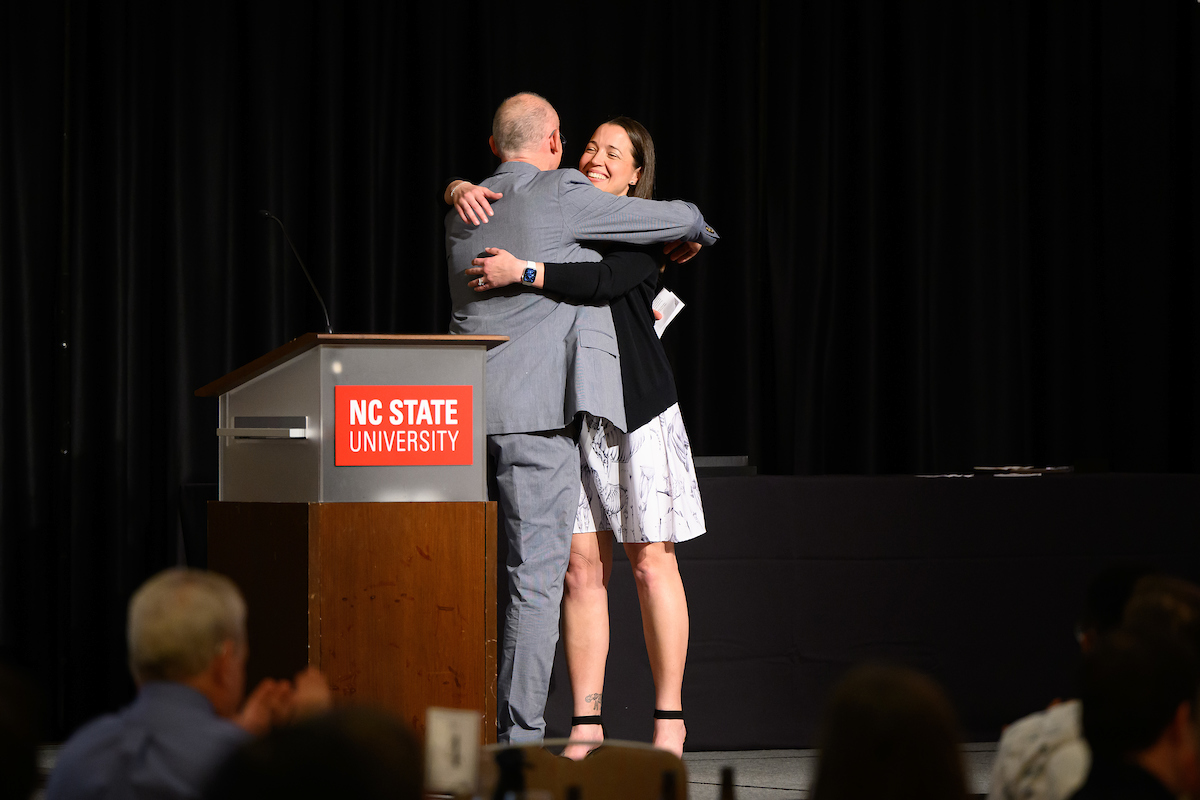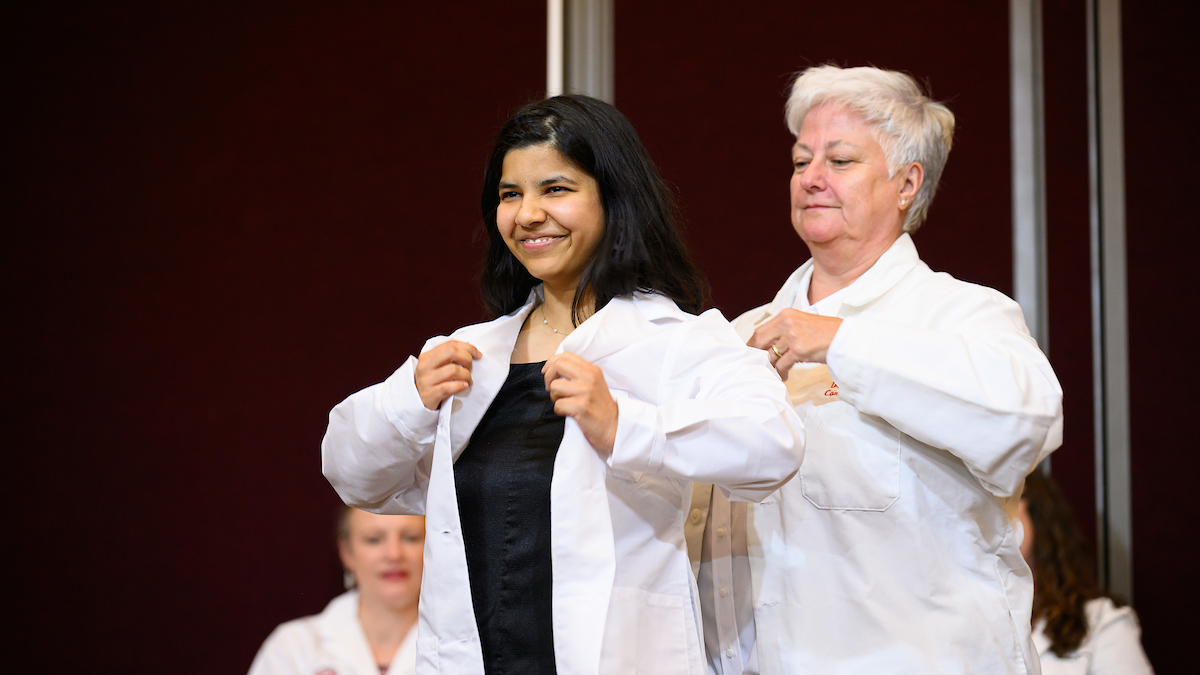‘A Miracle Goat’: Groundbreaking Cancer Treatment Holds Promise for Alvin
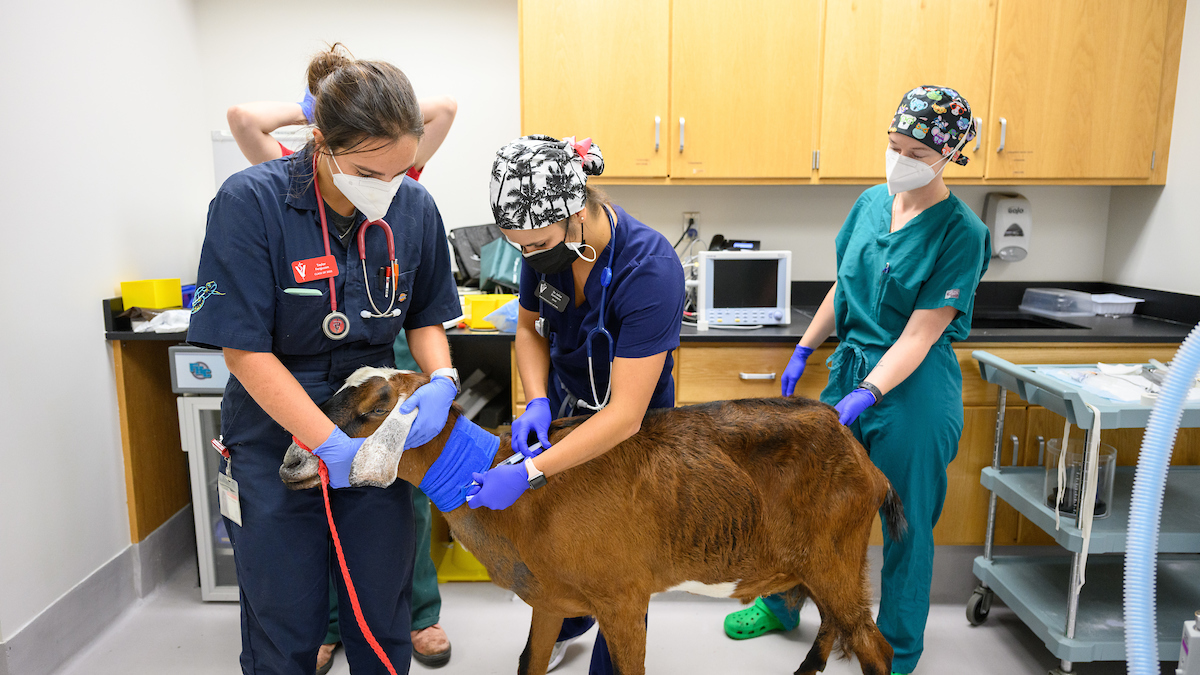
Alvin and Ivy are inseparable twin brothers.
The Nubian goats belonging to Charlotte Del Duca of Middleburg, Virginia, do everything together.
So when Alvin comes to the NC State Veterinary Hospital for treatment of a recurring thymoma — a cancer of the thymus gland — Ivy comes with him to provide moral support.
Del Duca brings both of them from Virginia to the CVM, where they are kept together during the weeks that Alvin receives his treatments. It reduces Alvin’s stress, and Ivy doesn’t call out for Alvin as he would if left at home.
Clinicians treated Alvin with radiation therapy, used when surgery is not possible because of either the tumor’s invasiveness or location. It’s also used when the tumor recurs and surgery is unlikely to prevent regrowth, like Alvin’s case. Both the disease and the treatment approach are unusual in goats. While thymoma impacts people, cats and dogs, it’s not often seen and treated in goats.
“Treating Alvin’s cancer was a unique opportunity for us. In my 20-plus years as an oncologist, I had not treated a goat with radiation therapy,” says Tracy Gieger, associate clinical professor of radiation oncology.
Del Duca first noticed a lump on Alvin’s neck in 2019. When the mass appeared larger in late 2020, Alvin went to the University of Pennsylvania’s New Bolton Center. Tests and imaging showed a thymoma intimately associated with the major vascular structure of his neck, and it was surgically debulked in January 2021. Debulking removes as much of a tumor as possible, but it is unable to remove it all.
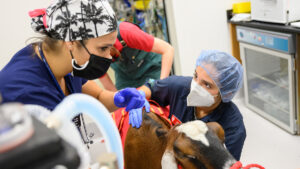
Lumps reappeared in April, this time with multiple masses surrounding all the vital structures of his neck. The New Bolton team recommended radiation therapy as the best remaining option for Alvin’s long-term survival and referred him to NC State, one of the closer facilities capable of providing treatment, in August.
“There wasn’t a lot of precedent for treating goats with radiation,” Del Duca says. “But to NC State’s credit, they were willing to go for broke.”
One additional complication is how Alvin would react to the anesthesia that’s necessary for radiation treatment. Patients must not move in order for radiation to be accurately aimed at the tumor.
Goats and other ruminants are particularly vulnerable to certain dangers when undergoing anesthesia. Anesthesia intern Jalise Zumstine says intubating goats can be difficult because their mouths are small and they have longer soft palates. Goats are also known for regurgitating stomach contents, which could result in aspiration pneumonia, and 12 to 24 hours of fasting is generally preferred prior to general anesthesia.
Another complication: Alvin’s size. He weighs over 190 pounds. It took five people to move him from a gurney to the radiation table, says Zumstine.
There was also the possibility of radiation-induced side effects to his esophagus. Since Alvin is a ruminant and his esophagus is constantly working to digest food, Gieger and her team were concerned radiation could cause such problems as decreased motility and pain while eating.
The radiation team decided that a Monday/Wednesday/Friday treatment schedule that allowed for 12 doses of radiation over four weeks would be the best bet for Alvin. The results have been encouraging.
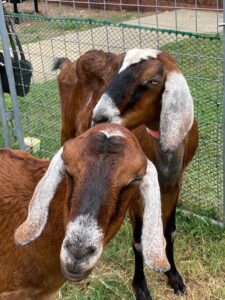
“The tumor was starting to shrink by the last week of treatment, and we are hopeful that it will continue to shrink in the coming weeks and months, as many tumors of that type do,” says Gieger. “We enjoyed visiting him and Ivy a few times a week on his ‘days off’ of treatment, and feeding them animal crackers.”
Del Duca is quick to credit others involved with Alvin’s case, including ruminant health resident Blanca Camacho Lopez, radiation oncology resident Maegan Watson-Skaggs and clinical counselor Rebecca Maher, who has been a source of encouragement and moral support to Alvin, Ivy and Del Duca throughout Alvin’s time at NC State.
“He’s going to make it,” she says. “He’s a miracle goat and has been blessed with exceptional medical care every step of his journey.”
~Steve Volstad/NC State Veterinary Medicine
- Categories:

